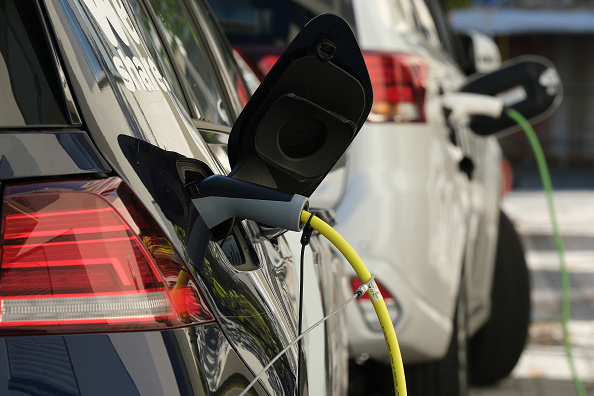UK now has more electric car charging points than petrol stations

There are now more public electric car charging points in Britain than petrol stations, according to newly released figures.
The Department of Transport has released numbers showing a breakdown of the amount of charging points in each borough in the UK.
Read more: Dyson pulls plug on electric car project
The total number of public charging points is 15,116, including 2,495 “rapid charging” points, compared to 9,000 petrol stations.
The lion’s share of these are in London, with almost one-third of all points installed in the capital.
The highest number are in boroughs of Westminster with 485 and Wandsworth with 414.
However, there are far fewer numbers in other major cities. Birmingham has just 90, while Manchester and Liverpool lay claim to 446 and 119 respectively.
Transport secretary Grant Shapps said it’s vital for more charging points to become available in the Midlands and in the North.
He urged local authorities to make use of a £5m pool to install public car charging points.
“Your postcode should play no part in how easy it is to use an electric car, and I’m determined electric vehicles become the new normal for drivers,” he said.
“It’s good news there are now more charging locations than petrol stations, but the clear gaps in provision are disappointing.
“I urge local councils to take advantage of all the Government support on offer to help ensure drivers in their area don’t miss out.”
A 2018 report by the Committee on Climate Change said the UK needed 29,000 public electric vehicle charging points by 2030 to meet vehicle demand, with 85 per cent of these needing to be rapid charging points.
Currently, only 16 per cent of the public chargers are deemed to have rapid charging capacity.
Daniel Brown, electric vehicle lead at the Renewable Energy Association, said it needed to be a priority to build more rapid charging points along the countr’s highways.
“For rapid public charging along the motorways, people are expecting increasing speeds and 150kW chargers are rightly becoming the norm to install, up from 50kW chargers a few years ago,” he said.
“This works well as higher charging rates suit areas with lower dwell-times.”
Read more: Back to the future…London unveils first 100 per cent electric taxi since 1897
Brown added that the government needed to go further by extending car charging schemes for homes and workplaces.
“Eventually the industry will need to move beyond a grant-based system for ensuring charging kit is deployed but in the short-term we are calling for an extension to the home and workplace schemes to 2023,” he said.